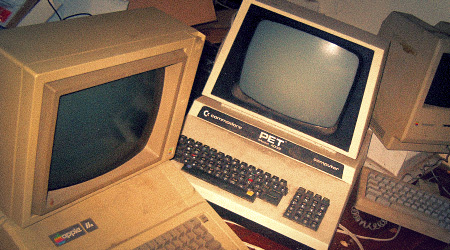What To Ask When Buying A Used Computer

Computers have become a common item in most homes due to low prices and the need for Internet access to social sites and online banking. Many computer users upgrade their systems after only 2 to 3 years of use even though the computer is still perfectly functional. Often cited reasons are that it feels slow or that they want the newest operating system and are unsure their older computer can handle it. Computers have a realistic lifespan of 6 to 8 years and often the only thing that needs to be done is reformatting and perhaps adding additional memory. There are however some specific questions which should be asked when buying a used computer.
Is it in Proper Working Condition?
Of course, purchasing a broken computer doesn't do anyone any good so ask it is in working order and all that functionality is intact. This includes booting correctly, system sound, Internet connectivity and the monitor turns on and looks decent. Ask if it has sustained any damage or if any major parts have been replaced. Most importantly, do not hand your money over to the seller until you can boot the computer yourself and verify it works.
Can it be Upgraded?
If the computer is only a few years old then upgrading won't be a concern. Most retail computers sold have sufficient memory, hard drive space and processor speed to last another 3 to 5 years at a minimum. If you will be using the computer for a specific reason such as image manipulation or gaming it may be good to ask if there is room for additional hard drives, more memory or if the video card is user replaceable. A used computer which can be upgraded can last even longer than the 6 to 8 year initial lifespan.
Is it Priced Correctly?
Any used computer on the market today should be priced to move. Not only are new systems only a few hundred dollars, which include many peripherals like a monitor and printer, but computers are a commodity item meaning there are millions of them available at any given time. Unless the computer is literally brand-new and there is a receipt to prove it then don't spend more than $100 on a used computer.
Is the Operating System Valid?
Most retail computers will have a valid installation of an operating system which was present at the time of purchase. There are however fraudulent copies of operating systems floating around that unscrupulous sellers may try to pass off as legitimate. Only purchase a used computer if valid documentation, which came in the computer's original box, can be provided showing a legitimate operating system registration number.
Are All Sales Final and As Is?
Given that you are likely only to spend $100 or less on a used computer it is not necessarily the end of the world if it breaks six months later. That doesn't mean that as a consumer you want to purchase a lemon. Verify with the seller that all sales are final and that the computer is being sold "as is." Depending on who you're dealing with there may be a limited warranty or the option to bring it back within 30 days. Most sales for used computers however will not include a guarantee or return option which is another reason why it is important to verify it works correctly and not to spend too much.
Elsewhere on StockMonkeys.com







